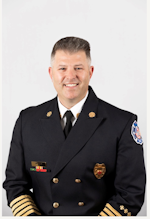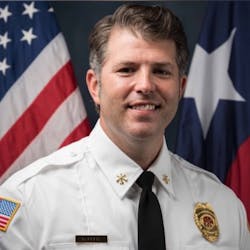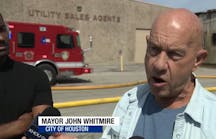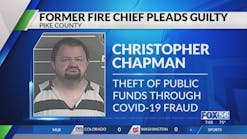The Company Officer: Mentoring, Motivating and Molding New-Gen Firefighters
Many of you had a conversation with someone who you really admired about that promotional process that didn’t work out for you. Or a tailboard talk that shaped, impacted and/or propelled you to a place of confidence and increased understanding.
The majority of my such experiences involved company officers or battalion chiefs who worked alongside me, believed in me, held me accountable, encouraged me—and, ultimately, recognized that their role was to mentor me. As I moved on, I would take their knowledge and gift of mentorship and pay it forward.
The responsibility of scene management is just the tip of the smooth bore. First-line supervisors are counselors, teachers, coaches, advocates, salespeople, investigators, pastors, disciplinarians, and, yes, even pseudo-parents at times for their people. You see, leadership is responsible for creating, fostering and encouraging a communicative environment. This increases transparent platforms, fosters healthy relationships, and aligns with organizational policy and procedures that can require tough choices.
The company officer is the most influential leader in the department. His/her daily effect on members is an aggregate for greatness and inspiration, as firefighters develop a sense of “self” as a maturing professional. I’m going to guess that many of you who are reading this article have someone in your past and/or present—and, hopefully, will in your future—who poured into you, listened to you, guided you, held you accountable or challenged you to be the best version of yourself that the fire service needs. So how do company officers mentor, motivate and mold a newer generation of firefighter? How do you accommodate communicative disconnects that can complicate how we understand each other? It’s about actively listening, learning about generational differences, and embracing openness with fervor and fortitude.
Generational barriers
Where barriers exist between officers and crew, messages can be distorted. If so, relationships can be affected negatively, and confusion and frustration can increase.
Fire departments comprise Baby Boomers, Gen Xers, Millennials and Gen Zers, aka post-Millennials. Each group grew up with different life-changing world events, advances in technology, significant people who changed the world, economic ups and downs, and tragedies and triumphs. As such, it’s necessary to embrace generational differences by listening and learning. If a company officer’s role is to mentor, motivate and mold the next generation, he/she must embrace an adaptive and transformational leadership role and be a student of generational differences.
Mentoring
Mentoring often is likened to coaching, but, to be fair and accurate, they are very different. Mentoring, particularly in the fire service, is a long-term relationship that is development-driven, with a holistic approach to career and personal growth. Mentoring is informal and inspirational for the mentee, based on his/her needs. There is less emphasis on measurable results and changed behavior. The interest is in development. The relationship is personal. Time, trust, accountability, guidance and wisdom are at the core of the mentor/mentee connection.
Adaptive leadership is the pulse of emergency operations. Firefighters, driver operators, company officers and chief officers thrive by adapting to changing conditions. They effectively mitigate problems via solutions that are based on resource management, critical decision-making and risk analysis. In the same vein, the company officer as a mentor must adapt to his/her people by assessing their personalities, learning styles and work behaviors with the emotional intelligence to recognize strengths and to challenge. Performing a CAN (conditions, actions, needs) report with your people with a quick size-up is paramount. The same skill set that is applied to high-risk/low-volume calls can be applied with your people. Influence, decisiveness and execution match the need.
In transformational leadership, the leader identifies necessary change by creating a vision, implementing the vision with tangible outcomes and inspiring a member with a collaborative approach to be an empowered, talented contributor. Some of the smartest people ride fire trucks and ambulances; all that’s necessary to tap their knowledge and wisdom is to ask questions, actively listen and validate their input.
So, as a company officer, embrace the responsibility of being a “built-in mentor.” Inspire, impact and intertwine your wisdom in the development of your people. Grow to be adaptive and transformational by listening, learning and living for and with them as someone who cares deeply for their professional and personal development.
Motivating
How do you motivate the unmotivated? How do you motivate people whose expectations of growth and personal challenge fall well below the standards that you set forth for yourself and your crew?
Motivation plays a critical role in the quality and productivity of work: The leader elicits a desired behavior through recognizing style, personality and past experiences. Motivation for some could be extrinsic (money, words of affirmation, awards), intrinsic (internal value of achievement) or a combination, depending on organizational philosophy, involvement, ownership and collaborative empowerment from the top, just to name a few factors.
At the end of the day, leaders can inspire but can’t make someone care. The motivation “care meter” is an individual choice. Yes, executive leadership and organizational philosophy play a major role in whether people feel valued, trusted, appreciated and cared for, but each person must choose to care intrinsically based on “sense of self.” By listening and learning, the company officer can gain insight into what motivates his/her people, including by identifying when they were the most motivated in their career and what was the catalyst or hindrance to being motivated?
As a mentoring company officer, your role centers on attitude. Attitude is the engine for motivation, with a mindset of progressive change to exemplify excellence every single day, even when the motivation care meter is lessened. Exhibit the behaviors that you want your people to model, and continue to listen, so you can learn from them, resulting in living as one motivated, cohesive crew.
Molding
As a leader, your ability to influence and shape firefighters’ character, ethical fortitude, work ethic, customer service mentality, firehouse community and love for the job—mold them, if you will—is no small task.
Gen Zers, who a majority of our newest firefighters are, enjoy community, crave intimacy, are competitive and tech-savvy, welcome change, prefer independence, want to be heard and possess an entrepreneurial spirit. Thus, capitalize on collaboration. Embrace a skill set that will advance the fire service. Engage in conversation. At the same time, share the beauty of tradition. Tradition unites generations of firefighters who have laughed, cried and laughed so hard that they cried together. Work isn’t a place where you arrive for a shift but a place where you create memories and help people in the process.
Firefighters (all ranks) are some of the best storytellers around. Some of the most impactful training is simply sitting around with a cup of coffee and sharing stories. Stories share tradition, relationships, heartaches, victories, experiences, knowledge and wisdom and unite a brotherhood and sisterhood. By simply listening to each other, we learn to live together while serving in the best profession in the world.
Through mentoring, motivating and molding, pass along a piece of yourself to someone else throughout their career to bridge the next generation of firefighters.

Dr. Brett Ellis
Dr. Brett Ellis is a 27-year veteran of the fire service and serves as the fire chief for the city of Webster Groves, MO. He holds a bachelor’s degree in fire administration from Western Illinois University, a master’s degree in leadership and adolescent development from Huntington University and a doctorate in education from Concordia University-Portland. As a consultant (AGILE Leadership Consulting Inc.), Ellis focuses on leadership, firefighter behavioral health, conflict resolution, officer development, organizational movement, relationship building and personnel role plays that are based on fire service lawsuits. As well, he teaches for the National Fire Academy and Columbia Southern University.






